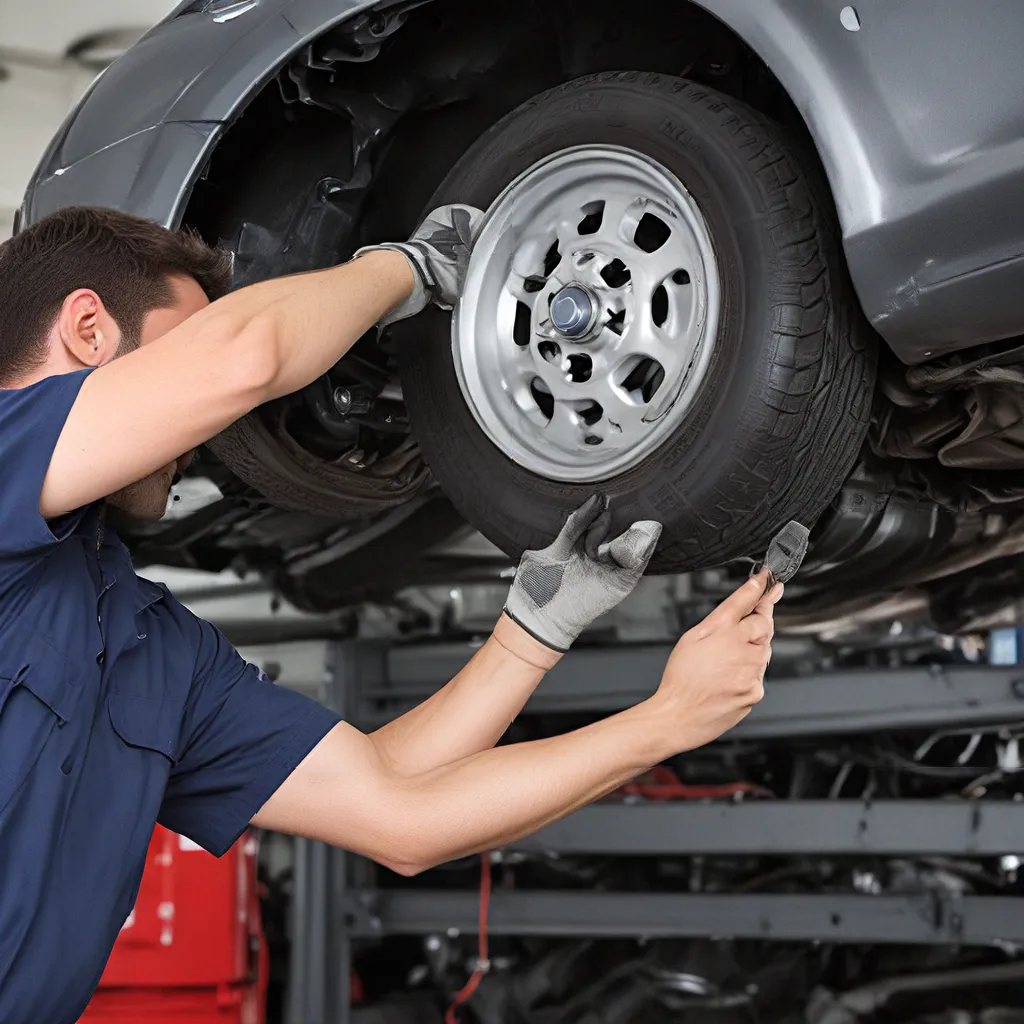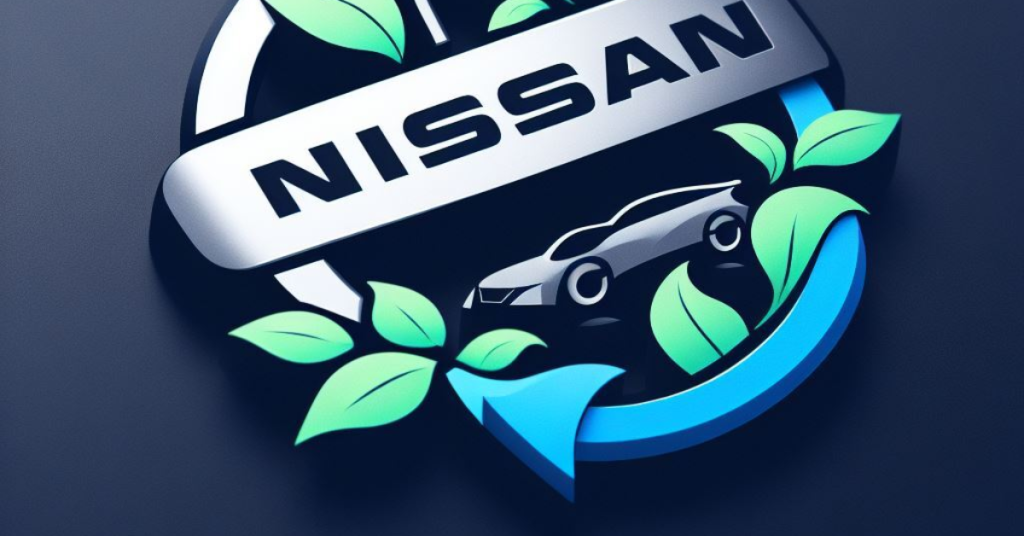
Buckle up, my fellow Nissan enthusiasts! Today, we’re going to dive deep into the world of preventive maintenance and unlock the secrets to keeping your beloved Nissan running like a well-oiled machine for years to come.
The Heartbeat of Your Nissan: Caring for Your Engine
Your Nissan’s engine is the beating heart that powers your every adventure. Just like you prioritize your own health, it’s crucial to give your engine the attention and care it deserves. And it all starts with one of the most fundamental maintenance tasks – oil changes.
Now, I know what you’re thinking: “Oil changes, really? That’s like the most basic thing ever.” But bear with me, my friend, because there’s more to it than meets the eye.
The recommended oil change interval may vary based on your Nissan’s make, model, and your driving habits, but a good rule of thumb is to change your oil every 5,000 to 7,500 miles or every six months, whichever comes first. However, it’s always best to consult your owner’s manual for the manufacturer-recommended intervals.
Why is this so important, you ask? Well, think of it like this: your engine is constantly working hard, generating heat and friction, and the oil is the lifeblood that keeps everything running smoothly. Over time, that oil breaks down and becomes contaminated, losing its ability to properly lubricate and protect your engine. Skipping or delaying oil changes can lead to accelerated wear and tear, ultimately shortening the lifespan of your Nissan’s most vital component.
Tip: Opt for high-quality oil that meets or exceeds your Nissan’s manufacturer specifications. Whether it’s conventional, synthetic, or a blend, make sure you’re using the right oil for your vehicle.
But oil changes are just the tip of the preventive maintenance iceberg. Let’s dive a little deeper, shall we?
Filters: The Unsung Heroes of Your Nissan
Ah, the humble filters – they may not be the flashiest parts of your Nissan, but they play a crucial role in keeping your ride in tip-top shape. Think of them as the bouncers of your engine, preventing all sorts of nasty contaminants from crashing the party.
The oil filter, for instance, traps dirt, debris, and other impurities that can wreak havoc on your engine’s internal components. Neglecting to replace it at the recommended intervals can lead to a build-up of sludge and gunk, which can ultimately cause your engine to seize up. Trust me, you don’t want that kind of drama in your life.
And then there’s the air filter – the unsung hero of your Nissan’s breathing apparatus. A clogged air filter can restrict airflow, reducing your engine’s performance and fuel efficiency. Imagine trying to run a marathon with a paper bag over your head – that’s kind of what your engine is dealing with when the air filter is in poor condition.
Regular air filter replacements are a must, folks. Trust me, your engine will thank you.
Tip: Set a calendar reminder to replace your Nissan’s oil and air filters at the recommended intervals. It’s a simple task that can pay huge dividends in the long run.
Brakes: Keeping You Safe, One Stop at a Time
Now, I know we’ve been talking a lot about the engine, but let’s not forget about another critical system in your Nissan – the brakes. These unsung heroes are what keep you safe and in control on the road, and they deserve some preventive maintenance love too.
Just like the oil and filters, your Nissan’s brake pads, rotors, and calipers all have a finite lifespan. Over time, they wear down, and if you don’t address the issue, you could be putting your safety at risk.
At Southwest Muffler & Brake, our experts recommend having your brakes inspected at least once a year, or any time you notice changes in their performance, such as excessive squeaking, grinding, or a spongy pedal feel.
Tip: Don’t wait until the last minute to replace your brake components. Staying on top of this maintenance can not only keep you safe but also help avoid costly repairs down the road.
Tires: The Unsung Heroes of the Road
Speaking of safety, let’s talk about another critical component of your Nissan – the tires. These unsung heroes are your direct connection to the road, and they play a vital role in your vehicle’s handling, braking, and overall performance.
Proper tire maintenance is crucial, and it goes beyond just keeping them properly inflated (although that’s important too). Regular tire rotations and alignments can help ensure even wear, which can extend the life of your tires and improve your fuel efficiency.
And let’s not forget about those all-important tire replacements. No matter how well you maintain them, tires do have a finite lifespan. Keeping an eye on the tread depth and replacing them when necessary is key to maintaining a safe, reliable ride.
Tip: Don’t wait until your tires are bald and worn to replace them. Investing in quality tires and staying on top of their maintenance can make a big difference in your Nissan’s performance and safety.
The Power of Preventive Maintenance: Maximizing Your Nissan’s Lifespan
Now, I know what you’re thinking: “All this maintenance stuff sounds like a lot of work!” And you’re right, it does require some effort. But trust me, the rewards are well worth it.
By staying on top of your Nissan’s preventive maintenance, you’ll not only extend the life of your vehicle, but you’ll also enjoy a smoother, safer, and more efficient ride. Plus, you’ll save yourself the headache (and the wallet-ache) of costly repairs down the road.
Nissan has built a reputation for producing durable, reliable vehicles, but even the best of them need a little TLC to keep them running at their best. So, let’s make a pact, shall we? Let’s commit to being the ultimate Nissan caretakers, keeping our beloved rides in tip-top shape for years to come.
Tip: Set up a preventive maintenance schedule and stick to it. Whether it’s a calendar reminder or a recurring appointment, make it a priority to keep your Nissan well-maintained.
Remember, your Nissan is more than just a mode of transportation – it’s a trusted companion that’s been with you through thick and thin. So, let’s show it some love and maximize its lifespan with these essential preventive maintenance practices. Your Nissan (and your wallet) will thank you for it.






